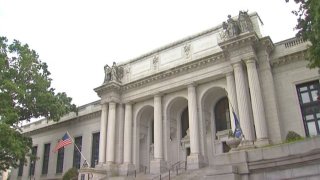
The Connecticut Supreme Court overturned on Wednesday the convictions of a businessman charged in an alleged human trafficking ring that prosecutors said preyed on young men who were mentally ill and intellectually disabled.
Justices ruled 7-0 that prosecutors did not prove Bruce Bemer knew the young men he paid for sex acts were victims of human trafficking.
Bemer, 67, of Glastonbury, who owns the New London-Waterford Speedbowl racetrack and other companies, was convicted by a jury in 2019 of four counts of patronizing a prostitute and one count of accessory to trafficking in persons. A judge sentenced him to 10 years in prison, but he remained free pending his appeal.
While Bemer admitted patronizing prostitutes, which is a misdemeanor, he was charged under a section of the law that makes it a felony to pay someone for sex knowing the person is a human trafficking victim.
Get top local stories in Connecticut delivered to you every morning. Sign up for NBC Connecticut's News Headlines newsletter.
Prosecutors said another man charged in the case, Robert King, of Danbury, found the young men at drug rehabs, group homes and other places and brought them to Bemer for sex acts. King, police said, gave the men drugs and took them to other men for sex acts so they could earn money to pay him back for the drugs.
King was convicted and sentenced to more than four years in prison. A third man pleaded guilty and was sentenced to a year in prison.
Police said they identified at least 15 victims of the trafficking ring but believed there could be dozens more.
Local
Danbury State's Attorney Stephen Sedensky III said Wednesday that he was reviewing the Supreme Court's ruling, but was "disappointed given the behavior that was shown to the jury.''
Brendon Levesque, a lawyer for Bemer, said the defense position had always been that there wasn't enough evidence to prove the charges.



